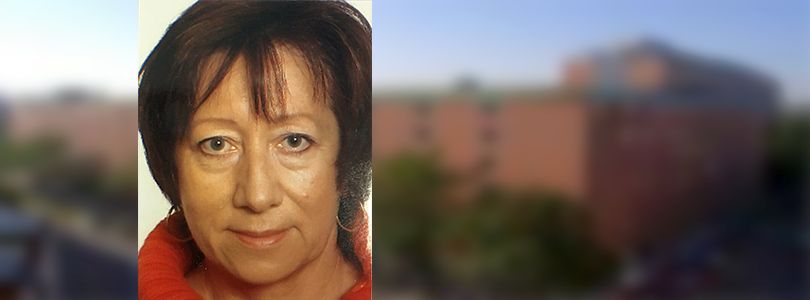Content
Monika Gerstmann


„After I had come to Munich with fears and certain prejudices, I quickly realised that they did not have any magic formula either and I was well able to fulfil my tasks.“
Former patent examiner at the AfEP and the DPMA
DPMA:What memories do you have of the years 1989/90?
Monika Gerstmann:When it became clear that monetary union and reunification were on the horizon, a period began that was marked by major changes, in my private, family and professional life. It was also clear to us examiners that the collapse of the GDR did not mean the simultaneous abolition of GDR patents and trade marks. Rather, it meant that they would have to be further processed under transitional legal provisions. What we did not know was whether we were to become a thing of the past or whether we would be taken on by the German Patent Office. New rumours were circulating every day. During that time, we lived with a degree of professional insecurity unknown to us before. This also meant a feeling of great insecurity for our families.
DPMA:How do you get through such a time?
Monika Gerstmann:By facing the new realities: In the summer of 1990, the rumours intensified suggesting that a major part of the GDR patent examiners would be taken on by the German Patent Office (DPA). It is said that the good understanding between the two presidents and the lack of specialist examiners in the DPA played a role. After all, qualified patent examiners were delivered straight to the office.
DPMA:How did your transfer to the DPA take place? When did you move to Munich?
Monika Gerstmann:We had to overcome some hurdles: We were interviewed by the Office for the Protection of the Constitution. Staff of the Munich Sub-Office also asked us about our job specifications and qualifications. We had to fill in countless forms and provide documents, such as proof of citizenship to confirm that we were actually German. I had to get health insurance and apply for child benefit.
All the things that were automatically handled in the GDR. I learned a lot.
However, I did not receive my transfer contract until 1 October 1990. It contained the provision "if required by the work assignment, the place of work is in Munich". So I had to get used to leaving my familiar surroundings, my circle of friends and family to move to Munich sooner or later. In return, it meant security for those who were taken on during this very eventful time.
In terms of work, everything was running as usual at that time. We continued to deal with the GDR IP rights.
DPMA:What had to be organised for the transfer by the DPA?
Monika Gerstmann:The DPA had to clarify with other federal authorities which grades the AfEP staff should be assigned to under civil service law and in terms of salaries, and whether the Berlin examiners should possibly stay in Berlin. The case files would have been sent to them from Munich.
Although some examiners were interested in a quick transfer to Munich, we had to wait until all the details were clarified in early 1993. The transfer to Munich then proceeded in a very accommodating manner with regard to the date of transfer and also the field of work or division to which we were to be assigned.
DPMA:And how did you know what kind of work would actually lie in store for you?
Monika Gerstmann:In 1992, all patent examiners were given the opportunity to participate in what was referred to as a taster week in a patent division in Munich. That helped to alleviate some of the fear of the future in Munich. In addition, we were trained by Munich examiners in Berlin on "Western" patent law matters. We welcomed that very much.
DPMA:How did the work at the DPA differ from the work at the AfEP?
Monika Gerstmann:On the whole, there was no difference between the examiner’s work at the two patent offices. Both patent acts (East and West) were derived from the Reichspatentgesetz (Imperial Patent Act) at that time. Due to this reason alone, there were many common features.
Having come to Munich with fears and certain prejudices, I quickly realised that they did not have any magic formula either and I was well able to fulfil my tasks. I was made very welcome by the colleagues of my new division. Until my retirement, I had a good, open, cooperative relationship with all colleagues. It was quite common to discuss a technical problem in the division with colleagues from the division, no one was left alone with technical problems.
From 1993 until my retirement in 2017, I worked as a patent examiner at the DPMA and was also in charge of searches. I also participated as rapporteur or assessor in utility model cancellations and opposition proceedings.
DPMA:What surprised you about the West German examiners?
Monika Gerstmann:That there were hardly any women among the examiners, except in chemistry. Of course, this was quite different in the GDR. However, following reunification and the transfer of the Berliners to Munich, this also changed fundamentally at the DPMA.
DPMA:When you look back on your career, how would you sum it up?
Monika Gerstmann:The bottom line is that it was good that I worked at the AfEP, that I was transferred to the DPMA following German reunification and that I worked in a very cooperative division here in Munich. I always enjoyed my work, and I was and am quite content also financially.
Last updated: 10 December 2025

Not only protecting innovations
Social Media